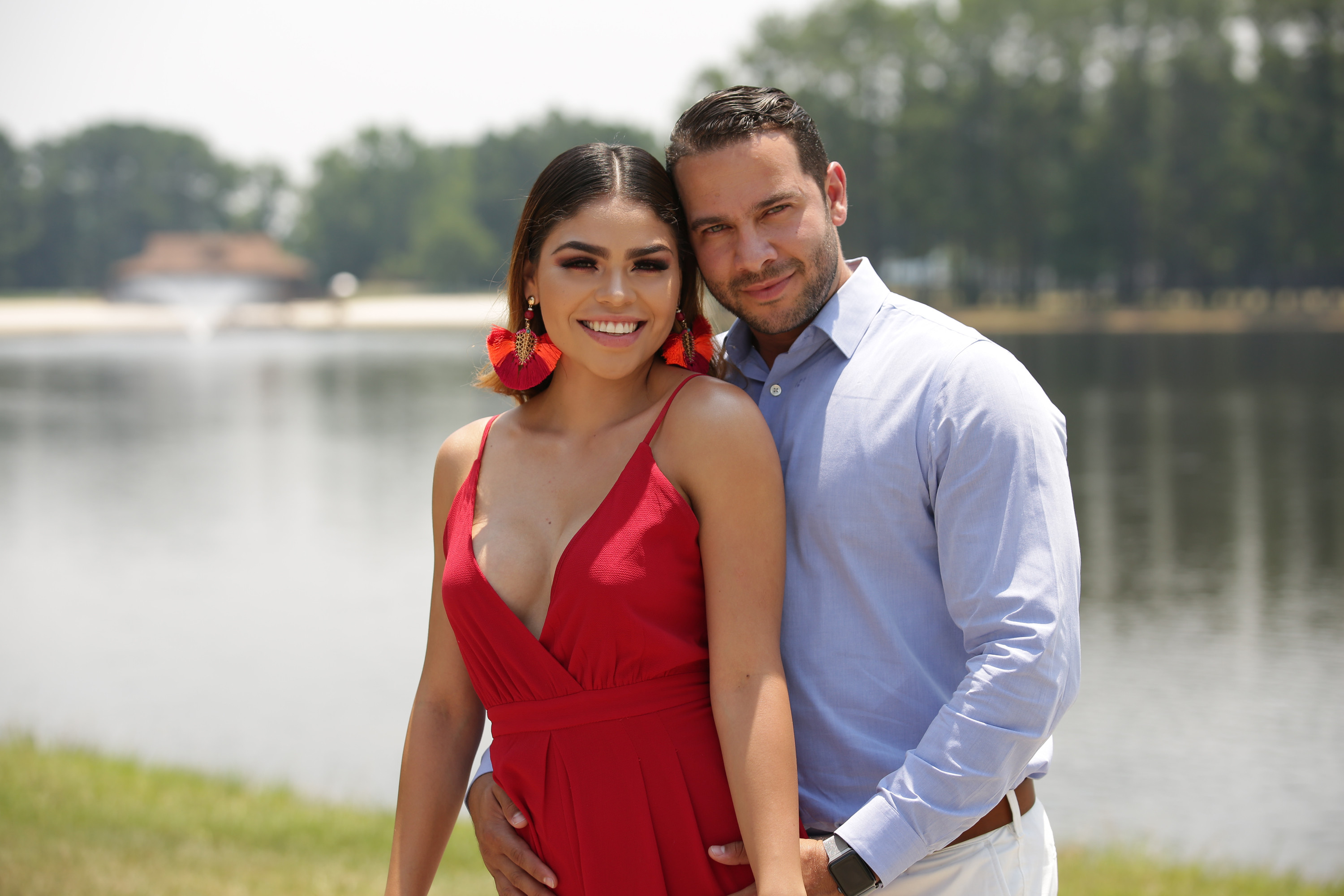The first words that come to mind when watching “90-Day Fiancé” are likely not love, finality or commitment — or at least they shouldn’t be. Perhaps, considering the show’s premise — an international love story, fast-tracked for political expediency — more choice descriptors might include shady, manipulative and even fraudulent.
The series follows two individuals, each from a different country, as they attempt to fall in love with each other in 90 days, a time-period mandated by the government and known as a “fiancé visa.” At stake here, in addition to the romance, is American citizenship, a prize valuable enough that the American participants often wonder whether their foreign-born lover wants them or their legal clout.
The show is addictive, no question about it. But if you want to watch two people fall in love over three months’ time, look elsewhere; the series’ main draw is a mix of schadenfreude and pity.
On the one hand, the American individual in the couple is generally despondent at their chances of love and willing to ignore their partner’s red flags if it means they might find a spouse. As a viewer, the pathetic bent their desperation takes can have you rooting for them to take the plunge, to commit to something they know is wrong because it might be better than a lifetime of loneliness.
On the other hand, the temptation to lampoon the compromising party in the relationship is real. They know they’re making a mistake, you know they’re making a mistake— at times, even their potential spouses seem close to breaking down and admitting the compatibility isn’t there. Their bull-headedness is obviously leading them down a dark path, but watching their terrible decisions unfold, and the ensuing consequences occur, offers all the grim enjoyment of a slow-motion car crash.
Take Danielle and Mohamed. There is clearly an age gap between the two of them, which leads Danielle to look at Mohamed with rose-colored glasses, while he sees only green looking at her. After just five months of talking in a global chatroom, Mohamed pops the question.
Later though, when Mohamed discovers Danielle’s financial issues, his feelings spontaneously began to flag. They go through with the wedding, but Danielle is left on her wedding day without a kiss from her new husband, who cites religious reasons for his conspicuously absent smooch.
After the wedding, Danielle begins to see red flags, such as her hubby’s habit of taking unannounced trips. Then, 14 months after their marriage, Mohamed receives his green card and sets his sights on all the opportunities his new country affords him, one being a young lady in Miami. Danielle files for an annulment, Mohamed somehow convinces her to drop it and now their marriage has reached an ugly, albeit legal stand-off.
In order to get their citizenship, every couple has to apply for a K-1 visa, colloquially known as the “fiancé visa.” In order to get the necessary legal document, the couple must meet either inside or outside the United States and file an I-129 petition as evidence they have met and are in a relationship.
Once the petition gets approved, the petitioner, or person who is already a citizen, has to wait for the process to get approval from the foreign embassy of the beneficiary, or the person seeking citizenship. They file for a visa, either before or after they pass the medical requirements, and then are called in for an interview. Finally, the most shocking requirement of all emerges: the couple has to marry within 90 days, or the beneficiary will be forced to return to their native country.
It isn’t so shocking, then, to see a citizen’s family question their choices: They are putting themselves and their families at risk of losing everything.
In some instances, worst-case scenarios come true. Angela Deem, a grandmother and two-time guest on “Maury,” discovered during the show that her new husband, Michael Ilesanmi, was stealing her money.
Of course, maybe Deem drove Ilesanmi to his breaking point. She was all over him when they met in his native Nigeria, to the point where it was downright disgusting. In an attempt to make Ilesanmi’s mother believe she liked the Nigerian food she was served, Deem regurgitated her food into her future husband’s mouth while cameras rolled.
Lucky for Ilesanmi, though, he got what he wanted: freedom. After putting up with and then marrying Deem, Ilesanmi nabbed a green card and a shot at a better future in America.
Given the insanity of most of the relationships, normalcy makes for a refreshing surprise. Loren and Alexei, whose love is going strong as of last month, are perhaps the exception that proves the rule. The couple, who, unlike most of the “90-Day Fiancé” matches, are around the same age, did not meet in an online dating forum, as seems to be the series’ M.O. Instead, they met in person when Loren traveled to Alexei’s native Israel on a Birthright trip.
After their whirlwind romance, the two tied the knot in both Israel and the United States, making it official internationally. The couple had their share of problems, of course, like when Loren’s family lied to Alexei’s family about Loren’s Tourette syndrome. Alexei is understandably miffed by the omission, as he wants to know about his wife’s genetic history before starting their families.
Additionally, Loren wants a say in her husband’s career choice, urging him to pursue a career in modeling rather than become a police officer, fireman or paramedic. Despite their disagreements, they seem to be doing quite well together.
Clearly, the show has its share of drama, but that messiness makes it the perfect series to love to hate. Its premise is far from traditional, but then again, so is modern dating. “90 Day Fiancé” might seem outlandish, but there’s really no such thing as a normal love story.
















